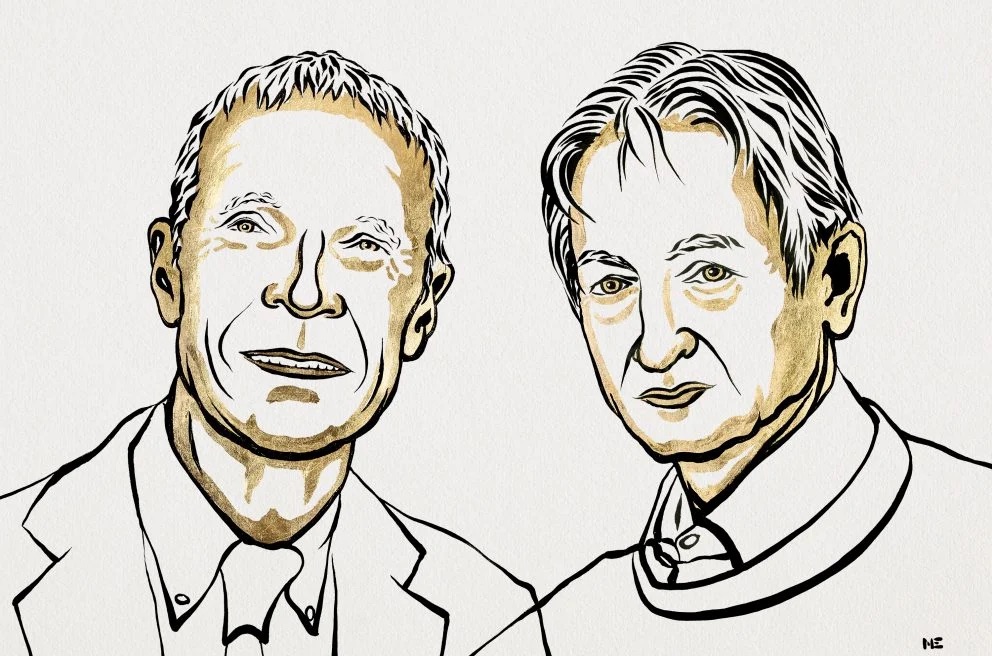Special Lecture: 2024 Nobel Prize in Physics#
Foundations of Machine Learning

The 2024 Nobel Prize in Physics has been awarded to John J. Hopfield and Geoffrey E. Hinton for their foundational contributions to machine learning using artificial neural networks (ANNs). Their work has laid the groundwork for today’s advanced machine learning systems and inspired countless developments across AI and computational sciences.
The laureates’ achievements include:
John Hopfield developed the Hopfield network, a recurrent neural network designed to store and reconstruct information. It is known for its associative memory, which can recall complete patterns from incomplete or noisy data by navigating a virtual energy landscape, akin to how a ball finds a valley in a terrain.
Geoffrey Hinton introduced the Boltzmann machine, which employs probabilistic methods and hidden layers to independently learn properties of data. This approach was crucial for advancing deep learning and generative models, leading to efficient training mechanisms like the Restricted Boltzmann Machine (RBM) that pretrains layers in modern neural networks.
Both Hopfield and Hinton used concepts from statistical physics to frame their ANN models, drawing inspiration from physical systems such as magnetic spins and energy states. Their work bridged physics and computation, enabling machines to perform complex pattern recognition and learning tasks that resemble the functioning of the human brain.
The breakthroughs of Hopfield and Hinton have not only driven the development of artificial neural networks but also revolutionized fields like image recognition, language modeling, clinical decision-making, and scientific research. Their contributions form the backbone of many contemporary AI applications, including language models like GPT and deep learning techniques in various disciplines.